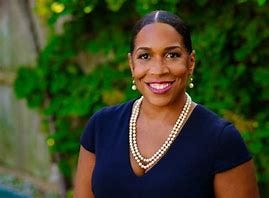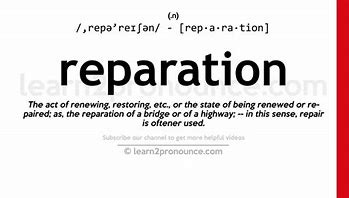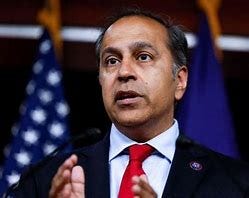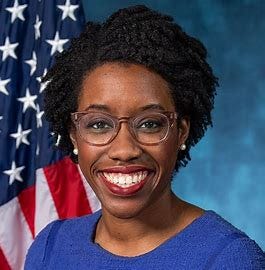Chicago taking a look at reparations
Applications are open for joining the city's reparation task force
Exactly 40 Chicagoans will be chosen to serve as members of the city’s Reparations Task Force. The number was revealed in a news release from Mayor Brandon Johnson’s office. The task force is being billed as the first comprehensive study on reparations for Black Chicagoans. The makeup of the task force includes 25 appointed through a nomination process by the Mayor's Office and the Aldermanic Black Caucus, and 15 through this public application process.
Although reparations here have been informally discussed for decades this is the first official action by the government. The task force will be working with a $500,000 appropriation that comes from the city’s 2024 budget.
In assembling this task force Johnson is taking a bold and risky step. It’s bold given that he is proceeding with something so many cities have talked themselves out of even before such a move got started. The risk emerges as the mayor runs the chance of alienating a large segment of the voting bloc-white residents.
How quickly the task force moves with recommendations determines if there will be any blow-back. The more prominent and visible the issue is near the 2027 election the more detrimental it may be for the incumbent.
Conversely, the reparations issue might be a rallying cry for the 20 percent of Black voters who did not choose Johnson in the February 2023 runoff election.
According to the release, the task represents “a critical step forward in acknowledging, addressing, and repairing generations of harm experienced by Black communities.; adding, The Chicago Reparations Study will analyze the harmful policies that have negatively impacted Black Chicagoans and their ancestors to identify appropriate remedies.” There is nothing identified beyond the study.
Other cities, including neighboring Evanston, put tangibles in place to address the reparations aspect. That city enacted a program granting $25,000 to residents who lived there from 1919 and 1998. Direct descendants of those Black residents also are covered by the plan. Unsurprisingly, the program faced lawsuits. The $25,000 payments were to come from local cannabis sales.
More than a dozen cities or counties have enacted or are exploring the possibility of paying reparations including Fulton County, GA.; Shelby County, TN; Alameda County, CA; Ashville, N.C.; Kansas City, MO; Los Angeles, CA; Boston, MA; Northampton, MA; Detroit, MI; St Paul, MN; St. Petersburgh, FL; Providence, R.I.; Durham, N.C.
Members of the Chicago Task Force will be compensated and agree to serve one year. During that period, they will:
Define what Black reparations means in the specific context of Chicago.
Identify key areas of harm for redress (e.g., housing, policing, incarceration, education, health, and economic development);
Contribute to and amplify public testimonials and personal narratives to include within the report.
Review policies and practices that have led to structural inequities.
Help develop recommendations and remedies for reparative action.
Attend community engagement sessions and public hearings.
Attend 90-minute Task Force monthly meetings
Review relevant materials to inform decision-making and recommendations.
Support the development of Chicago’s Reparations Study.
Anyone interested in applying should follow this link- equity.opportunities@cityofchicago.org.
Illinois may expand its role as the state with the highest number of Black U.S senators

Regardless of how long ago they served, three individuals are household names in and around Chicago - Carol Moseley Braun, Roland Burris and Barack Obama. Each has represented the U.S Senate as a member from Illinois.
Incumbent U.S. Senator Dick Durbin recent announcement that he will not seek reelection ignited a wave of speculation about a potential successor; and four names emerged almost immediately.
Lt. Governor Juliana Stratton was identified early on that she would make a bid for the office. That was confirmed April 24 when she confirmed she is a candidate. A day later, Gov. JB Pritzker endorsed her.
Speculation continues that soon State Rep. Robin Kelly or Congresswoman Lauren Underwood will be next with their respective announcement. The field is expected to get more crowded with a campaign by Raja Krishnamoorthi of the 8th Congressional District.
There will be a lot of attention paid to the spending in this race, Pritzker, a billionaire can flood Stratton’s coffers with cash; Krishnamoorthi, according to the Federal Election Commission is sitting on a $19 million war chest.
Kelly, who represents the 2nd Congressional District, has amassed slightly more than $2 million which would be available for a Senate run.
Underwood’s latest filing shows the has a hair above $1.1 million. Because Stratton has just formed her election team, she has yet to report any fundraising.
At 38 years old, Underwood is the youngest of the potential candidates. She has been a member of Congress since 2019. Krishnamoorthi, 51, went to Congress in 2017. Kelly is 68 and the oldest and longest serving of this cohort, first taking office in 2013.
Durbin’s announcement this early means potential successors have a grueling 18-month ahead of them. The time frame gives a candidate like Underwood ample time to try to build statewide name recognition.
Regardless of who emerges victorious on the Dem’s side; the general election could be the most interesting since Durbin first took office. If there is any veracity to stories that former Illinois Governor Rod Blagojevich will run as a Republican; voters from that party are likely to turn out in large numbers. Traditionally, their numbers are anemic compared to the Dems. It wasn’t unusual for Durbin to win his races by 1 million votes or more.
Once a Democrat, Blago became a MAGA Republican after then-President Donald Trump issued a pardon in February 2020. However, the fact he spent time in prison and was removed from the governor’s office in 2009.








